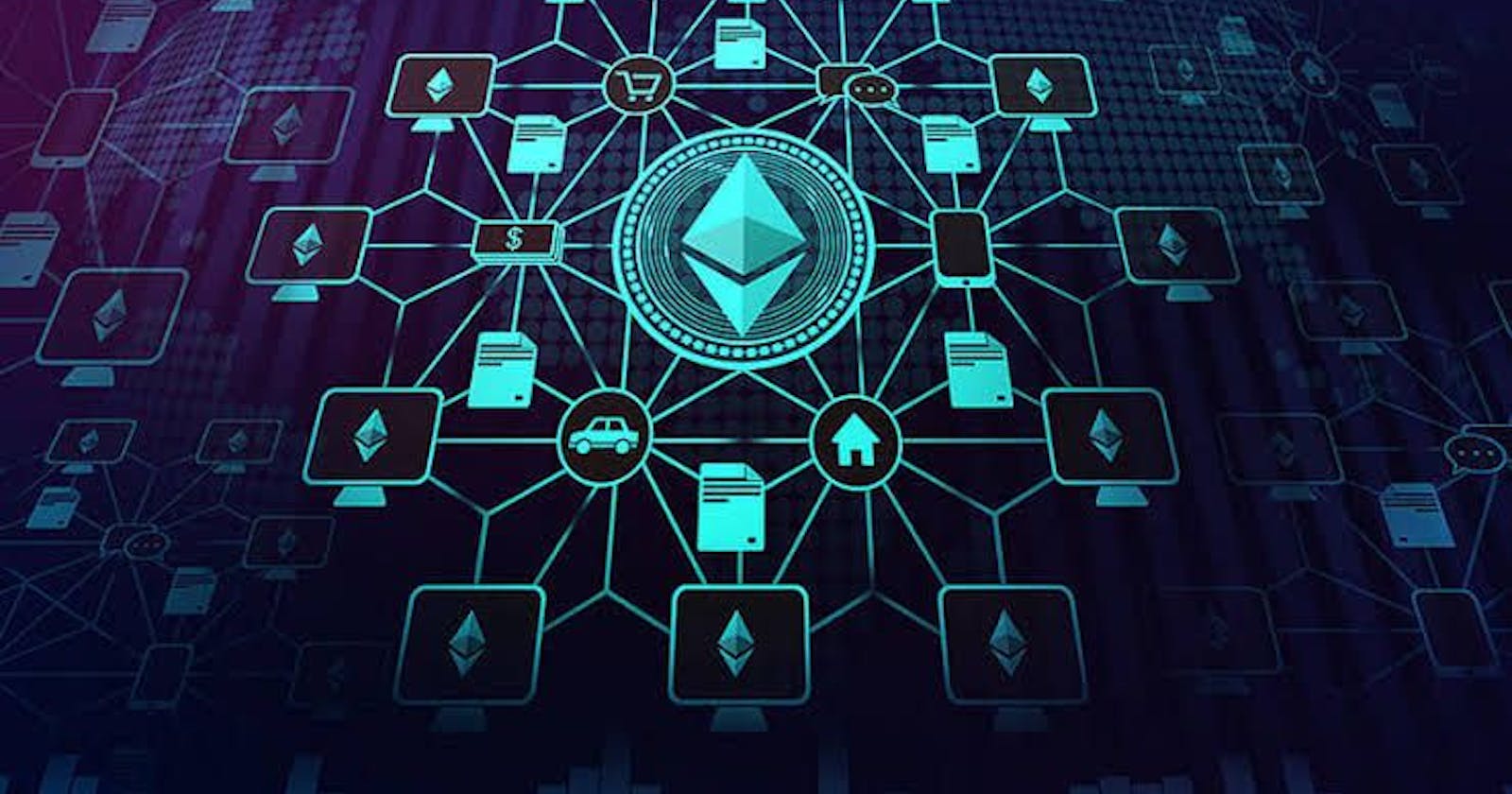Table of contents
No headings in the article.
When was Smart Contract Invented ?
In 1994, Nick Szabo (a cryptographer), came up with the idea of being able to record contracts in the form of computer code. This contract would be activated automatically when certain conditions are met.
This idea could potentially remove the need for trusted third-party companies (such as banks). Why, though? The answer is simple — because you no longer need a trusted third party when you make a transaction. Instead, the contracts (or transactions) are self-executed on a trusted network that is completely controlled by computers.
Cool idea, right? Szabo worked on this idea for many years and even wrote a book called “Smart Contracts: Building Blocks for Digital Free Markets“. The problem was that back in 1994, blockchain technology didn’t exist. But it does now! In 2009, Bitcoin introduced the first use of blockchain technology. In 2015, Ethereum was founded by an intelligent young man named Vitalik Buterin, and it introduced the first working smart contracts.
What Is a Smart Contract ?
A smart contract is an agreement between two people in the form of computer code. They run on the blockchain, so they are stored on a public database and cannot be changed.
The transactions that happen in a smart contract are processed by the blockchain, which means they can be sent automatically without a third party. This means there is no one to rely on!
The transactions only happen when the conditions in the agreement are met — there is no third party, so there are no issues with trust.
How Does Smart Contract Work ?
Let’s Imagine this scenario, where Todi wants to buy Bolu’s house. This agreement is formed on Ethereum Blockchain using a smart contract. The smart contract contains an agreement between Todi and Bolu.
In a simple way, the agreement/contract will look like this: When Todi pays Bolu 300 Ether, then Todi will receive ownership of the house.
Once this smart contract agreement has been put into place, it cannot be changed — meaning Todi can feel safe to pay Bolu 300 Ether for the house.
Without the use of a smart contract in this scenario, Todi and Bolu would have to pay lots of fees to third-party companies. Including the bank, a lawyer and a house broker. It’s great, right? No more commissions and no more delays to wait for a lawyer and broker to process the agreement! This is just one of many examples of how a smart contract can be used.
Smart contracts are automatically executed once the conditions of the agreement are met. This means there is no need for a third party, like a bank, a broker, or a government. How Is This Possible ?
As mentioned before, we have the blockchain to thank. Because of blockchain technology, we are able to decentralize smart contracts so that they are fair and trustless. By decentralizing, I mean that they are not controlled by one central party (like a bank, broker, or government, etc.).
The blockchain is a shared database run by many computers (called 'nodes') belonging to many different people. Because of this, not one single person or company has control of it. It means it's near impossible to hack it — the hacker would need to hack more than half of the nodes if they wanted to attack the blockchain or the smart contracts that run on it. Therefore, smart contracts can run safely and automatically without anyone being able to change them! Now you know even more about what a smart contract is!
What Are Smart Contract Uses ?
Smart Contract can be used for any other type of transaction, it’s not streamlined to Financial transactions. The possibilities are endless for smart contracts. They are already being used for financial trades and services, insurance, credit authorization, legal processes, and even for crowdfunding agreements (ICOs).
Health Systems
As blockchain technology becomes more mainstream, the benefits of using smart contracts in healthcare are becoming more widely understood. But many still do not realize the positive impact they can have on the industry.
One of the most powerful use cases for blockchain lies in smart contracts. The security and safety of blockchain technology makes smart contracts and their digital agreements suitable for any domain, including healthcare. With the increased number of patients needing medical care, there has been a significant strain on healthcare providers.
Managing patients’ health information, records, and data has become a large task for many practitioners. Additionally, there have been many cases of fraud due to the vulnerability of the outdated systems currently in use. These issues cannot be solved by practitioners alone. This is where smart contracts come in.
Health insurance
Smart contracts can be used daily in health insurance and could reduce many inefficiencies in the current system. If patients use smart contracts to buy their insurance, all details of their policy will be automatically secured in their patient profile. This is then stored on the This is then stored on the blockchain – a safe and secure ledger which is less prone to hackers than a traditional database.
They could also eliminate the stress involved in having to file lengthy insurance claim forms. If an insurer has to go through a medical procedure that is covered by the insurance policy, the smart contract would be automatically triggered. This means that the money from the insurance company’s account will go straight to the hospital. This automation cuts out any delays and hassle and allows for correct payments of medical services. In turn, this would speed up all transactions between parties and ensure the procedure does not get delayed.
Health records
Smart contracts allow records and information to be stored on a digital ledger. This means if a patient was moving from one hospital to another, they would be able to do so with ease and without having to fill out numerous forms. Records can then also be viewed by the patient’s preferred physician on the blockchain network.
Governments
There is a wide range of ways governments can leverage public ledger for streamlining processes to fraud reduction, to resource sharing, to secure data storage. Let’s have a look at some examples of smart contracts and blockchain usage in government and public sectors:
Identity Management
With global digitization, people express more concern about their digital private data. With blockchain, governments can establish well-protected digital identities of their citizens, gathering all the private data, e.g. birth certificates, passports, marriage licenses, driving licenses, etc. into a single encrypted element. Personal records can be changed or managed with the help of smart contracts and data access can be provided with individual authorization. In the future, digital identities are likely to be extended with more data, e.g. health records and voting rights, making data access more convenient and controlled by individuals.
Taxation
Tax authorities can significantly speed up and streamline tax collection processes with smart contracts. The contracts can be used for checking if tax data matches with the transactions made or calculating social security and tax deductions. Aside from verifying tax data compliance, implementing a public ledger, tax departments can decrease the cases of tax fraud.
Vaccine Tracking
The Covid-19 outbreak has presented new challenges to the world. Part of them can be successfully solved with blockchain and smart contracts. For example, the vaccine passports can be enhanced with blockchain vaccination verification systems to quickly verify the vaccination status of citizens. Meanwhile, embedded into vaccine distribution networks, blockchain can ensure vaccine safety and efficiency as well as provide real-time visibility of its distribution.
Public or Private Networks
Governments can use blockchain for public and private access. When used publicly, anyone can access the network and participate in it. For example, citizens can provide their data through the ledger and get identical copies of the documents, e.g. licenses or certificates. This way, governmental institutions, and citizens can quickly exchange the data and guarantee that it doesn’t get lost anywhere.
Private blockchain networks are used for permissioned data access. The governmental facilities can use this type of network for inner data exchange. Moreover, each organization can be authorized to have access only to specific data or get limited access to the ledger depending on the given rights.
Benefits Of Smart Contracts
Smart contracts are self-executing, which means they are automatically executed based on specific pre-defined data and actions. The basic concept behind smart contracts is that trust in human beings is eliminated from business relationships. Users can also record contractual obligations in computer code instead of being recorded by a notary or lawyer.
Smart contracts have a host of potential benefits.
Transparency: Because smart contracts are created and housed on a blockchain, the transaction record is available and (theoretically) immutable. This eliminates ambiguities that may exist in paper trails. Regulators can also review transaction records during audits.
Autonomy: Intermediaries, a commonplace aspect of typical contract execution, are ultimately nonessential to executing the terms included in a contract. Instead of third parties holding stores of value in escrow, smart contracts only involve the two signing parties.
Efficiency: Because smart contracts automatically execute terms written into the code, they are highly efficient. Involving only the main parties saves time and resources. The automatic execution of terms also speeds up the process.
Lower cost: By cutting out third parties, companies lower transaction costs. In specific industries, like real estate and lending, third-party fees may be steep, so eliminating them can lower costs significantly.
Smart contracts are already beginning to replace middlemen. We also saw the potential this has for future applications — remember Todi and Bolu’s house sale? They didn’t need an estate agent, lawyer or bank, did they? So, if smart contracts fulfill their purpose, perhaps we’ll one day live in a world that is free of middlemen.
Smart contracts can make the world a better place that is free of commission. It can reduce fraud, delays, and the overall cost of many things. However, as we further advance technology, we remove the need for certain jobs.

